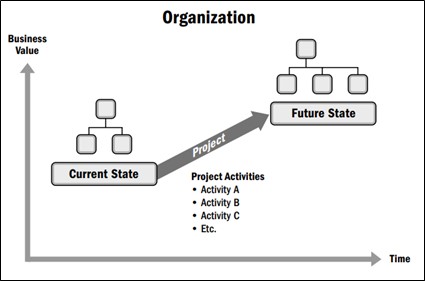A bridge between Project Management’s sub-activities
(especially in multi-project context) and
“ordinary” assignments to follow
FEATURED PAPER
By Marianna Spezie and Damiano Bragantini
Verona, Italy
ABSTRACT
For some people, organization is a way of life, from private life planning meals and shopping lists several days in advance, to the purely working environment: they keep track of all work projects, they always know what the present and future commitments and those to pay particular attention to are, and above all there is never missing a deadline. But what happens when, usually at work, time management becomes a difficult business due to a multi-project context with different tasks and sub-activities when there are also “ordinary” activities to complete and follow at the same time? The question comes immediately: “And now? What should I do first?”
Without having a specific software used to manage different tasks and schedules, it becomes difficult to remember all the sub-activities of a given project, to give the right importance to them, and then to balance it with office daily routine: consequently, the time spent cannot be recreated and once it has elapsed it cannot be reused. If it is used unproductively, it is necessary to add resources to complete the work required and this inevitably leads to higher costs. Therefore, this paper aims at investigating how the benefits of using a Task Management Software (TMS) in an office context within the company can lead an organization to seen improved the ability of managers and professionals (but also for the other Stakeholder engaged) to use and make the most of their time, by definition a limited resource and therefore precious for the achievement of business objectives. [1]
A literature review in the field of task management software was performed, with particular attention in setting the priorities, in terms of efficiency and productivity, between activities and tasks coming from projects but also “ordinary” duties. In more details, organizational and managerial aspects, subjects involved, advantages, enabling and hindering factors, and context of application were analysed, in order to prove that an implementation and subsequently adoption of a TMS can offer the necessary help for anyone who simply wants a solution to keep things to do under control, by excellently balancing and managing the tasks and schedules of a project and, at the same time, focusing on the office routine.
Keywords: Project Management, Task Management Software, Stakeholder Engagement, Eisenhower Matrix, multi-project Management, efficiency
INTRODUCTION
A project is by definition a set of cross-functional and multidisciplinary activities that are undertaken at all levels of the organizational structure and can involve from a single subject to thousands of people (stakeholders) with heterogeneous skills, disciplines, and different professional roles. The word itself derives from the Latin verb “pròicere” (or in a non-contracted form “pro iacere”), that is to launch or project: the focus is precisely the future, understood as planning, monitoring and advancing certain activities. [2]. In fact, they must be exploited, managed, and oriented to achieve the project objectives, with the ultimate aim of creating value for the company itself (Figure 1.1).

Figure 1.1 Transition of the state of an organization through a project Source: PMBOK, p.6 [4]
Organizational structures carry out the activities to achieve a series of objectives: generally, these activities can be classified as belonging to a project or operational functions, although the two categories sometimes have common areas. Projects and operations share many characteristics: they are both executed by people (teams), they are constrained by limited resources, they are subject to planning, execution and control. However, they are to be distinguished mainly by the fact that the operational functions are performed continuously and are repetitive in nature, while the nature of the projects is temporary and unique [3].
More…
To read entire paper, click here
How to cite this paper: Spezie, M., Damiano, B. (2023). The Development of a Task Management Software (TMS): a bridge between Project Management’s sub-activities (especially in multi-project context) and “ordinary” assignments to follow; PM World Journal, Vol. XII, Issue IV, April. Available online at https://pmworldjournal.com/wp-content/uploads/2023/04/pmwj128-Apr2023-Spezie-Bragantini-development-of-task-management-software.pdf
About the Authors

Marianna Spezie
Verona, Italy
![]()
Marianna Spezie is a licensed Engineer with a Master’s degree in Engineering Management from University of Padua (2020) with the thesis: “Project Management and the importance of Stakeholder analysis in Risk Management: the case of the Meter Commissioning Plan of electric smart meters 2G (PMS2) in Megareti ” (Available online at available in the university’s “Padua Thesis and Dissertation Archive” section at https://thesis.unipd.it/handle/20.500.12608/21224), or https://thesis.unipd.it/retrieve/3f637ced-c43f-40c8-abdd-3cdacfbc463c/Spezie_Marianna_1205729.pdf)
Marianna has done an internship in Project Management in AGSM Group, an important Italian utility in generation, distribution and supply of electricity and gas, and has worked as a teacher of ICT (Information and Communication Technology) in high school in the city of Verona. Currently she works in AGSM AIM Group in the role of Data Analyst (accounting management of investments and costs, coordination/monitoring of projects and processes). She is very interested in the Project Management field, in particular Risk Management and Stakeholder Engagement, as well as the the application of Project Management principles in interdisciplinary contexts, such as the health sector and the IT field, in terms of managing and improving tasks, work priorities and organizational capacity of the individual.
Marianna Spezie can be contacted at mariannaspezie95@gmail.com.

Damiano Bragantini
Verona, Italy
![]()
Damiano Bragantini is a Civil Engineer with more than 20 years of experience in Civil Infrastructure and Information Technology. He has worked with Agsm Group, an important Italian utility in generation, distribution and supply of electricity and gas. Currently he works as Warehouse Manager of both Verona and Vicenza offices in AGSM AIM Group. Mr. Bragantini was also a recognized teacher at the University of Liverpool (UK) where he taught in project management MSc. Mr. Bragantini is a certified Project Management Professional (PMP) from the Project Management Institute (PMI). He has been also actively involved with Project Management Institute (PMI) as a final Exposure Draft Reviewer for Project Cost Estimating Standard and Practice Standard for Earned Value and as internal reviewer of PMBOK Fifth Edition. Mr. Bragantini has also been actively involved and is still involved with the local PMI Northern Italy Chapter, where he has been a contributor to some projects.
Damiano Bragantini can be contacted at damiano.bragantini@agsmaim.it









